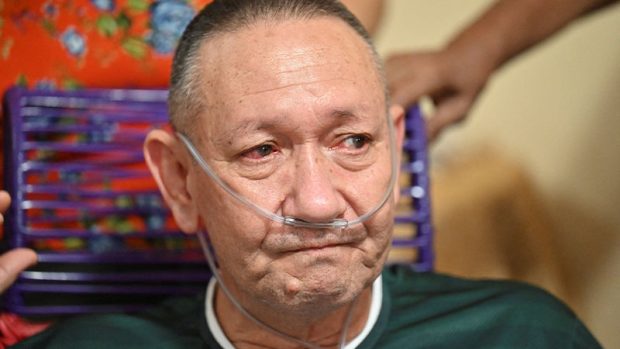March 11, 2023
Colombia Edges Towards Human Rights Model
Colombia Edges Towards Human Rights Model in the Court decision concerning the first non-terminal person to be assisted to die reports MercoPress.
The 60-year-old Víctor Escobar has become Colombia’s first non-terminal patient to die through euthanasia, after a legal battle of over two years.
He was suffering from chronic obstructive pulmonary disease that prevented him from breathing on his own.

At age 24, Escobar suffered a serious traffic accident while working in cargo transport, which led him to undergo several surgeries to regain mobility and therapy to regain memory.
In 2007 and 2008, he suffered two brain haemorrhages and his health deteriorated in the last 15 years due to chronic obstructive pulmonary disease (COPD), mobility difficulties, diabetes, hypertension and heart problems.
In June 2021, the Health Promotion Entity (EPS) denied Escobar the right to euthanasia after determining that his illnesses were not terminal.
But, four months after the EPS statement, a Constitutional Court ruling opened a new opportunity for Escobar to continue his legal fight.
Escobar then took advantage of the notoriety his case had gained to as for a job for his partner of the last 15 years and also announced he would donate his organs while making a last request: to die in the jersey of his favorite football team: Deportivo Cali.
In October last year, a Constitutional Court Plenum approved the decriminalization to guarantee “the right to a dignified death due to bodily injury or serious and incurable diseases,” thus voting against Colombian penal law mandating between 16 and 54 months in prison for those who cause death to end intense suffering.
As per the new ruling, euthanasia is legal provided it is carried out by a doctor “and with free and informed consent.”
Another high profile case of euthanasia in Colombia is that of Martha Sepúlveda, who was to be the first non-terminal patient to receive it, but just hours before the procedure the Colombian Pain Institute (Incodol) decided to cancel it because a new scientific committee determined that “it did not meet the termination criteria.”
Despite this, a Medellín judge has accepted Sepúlveda’s case. “Martha is going to make the decision on the date to carry out the procedure,” her lawer Lucas Correa told Radio Caracol.
“It is a decision that she is going to make with her family in a private and accompanied manner.”
Sepúlveda is 51 years old and three years ago she was diagnosed with amyotrophic lateral sclerosis (ALS), also known as Lou Gehrig’s disease, which prevents her from moving on her own, causing her excruciating pain.